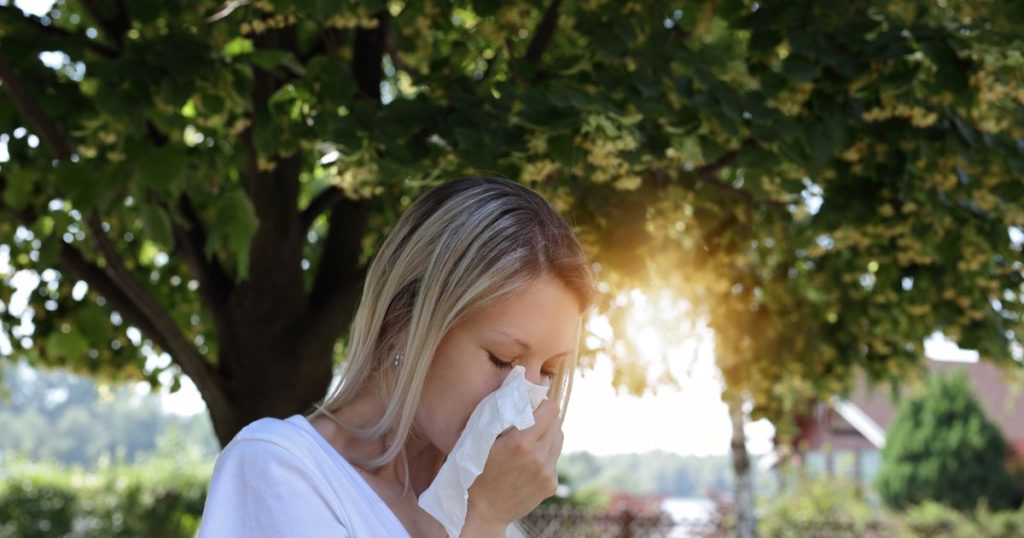If you’ve got a blocked nose, you may jump to the wrong conclusion about the cause – but the NHS makes it clear that there are subtle differences between colds, Covid and hay fever. Hay fever, colds, and Covid have similar symptoms, such as sniffly and blocked noses, headaches, and muscle aches. These health issues can occur for different reasons, so knowing the differences between them is crucial. You can take medications to soothe symptoms and get tested for Covid to determine the precise cause of your symptoms.
Hay fever symptoms include sneezing, coughing, a runny or blocked nose, itchy red or watery eyes, itchy throat, mouth, nose, and ears, loss of smell, pain around the head and forehead, headache, and feeling tired. These symptoms worsen between late March and September when the pollen count is high. Precautions you can take to alleviate hay fever symptoms include wearing sunglasses, washing pollen off after being outside, keeping windows and doors shut, and using filters in your car and vacuum cleaner.
If you suspect you have a spring cold, symptoms may include a blocked or runny nose, sneezing, sore throat, hoarse voice, cough, feeling tired and unwell, high temperature, aching muscles, loss of taste, lost sense of smell, and pressure in ears and face. Treatment options for a cold include resting, drinking plenty of fluids, eating healthy, and using home remedies like gargling salt water or drinking hot honey and lemon.
In the case of Covid, it may have slightly different symptoms from a cold, such as a high temperature or chills, a new continuous cough, loss or change in smell or taste, shortness of breath, exhaustion, body aches, headache, sore throat, blocked or runny nose, loss of appetite, diarrhea, nausea, and vomiting. Even though the pandemic seems to be winding down, it’s essential to be cautious, especially if you test positive for Covid. If you feel you might have Covid, you should self-isolate for five days after testing positive to avoid spreading the virus.
It’s important to differentiate between these conditions as their treatment plans differ. For hay fever, precautions like wearing protective gear and pollen filters can help. A spring cold may require rest and home remedies, while Covid may need more extensive precautions due to its contagious nature. Understanding the specific symptoms and taking appropriate measures can help manage and alleviate your symptoms effectively. Consulting with a healthcare professional for accurate diagnosis and treatment guidance is recommended for persistent or severe symptoms.


